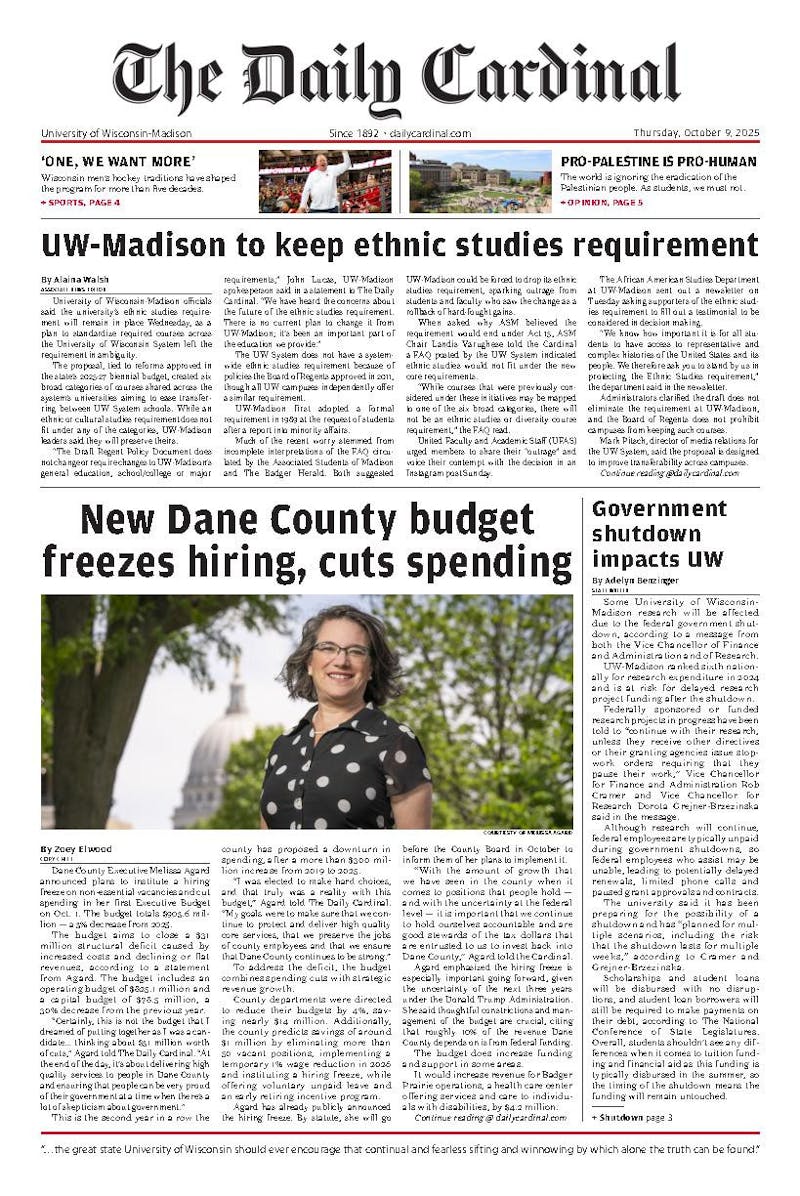Madison soccer fans are frustrated at FIFA’s new dynamic pricing system for next summer’s World Cup. The world-renowned event returns to North America for the first time since 1994, but not without controversy as the ticketing strategy leaves fans wondering if they can afford to experience the unforgettable spectacle.
“The World Cup is more important than just making business decisions. It’s about growing globally, but especially growing the game in its host nations,” Conor Caloia, president and COO of professional club Forward Madison FC, said.
The dynamic pricing system, first introduced at this year’s Club World Cup, will determine ticket prices based on factors including consumer demand, the significance of the match and general interest from fans. That means tickets for a knockout stage match between the United States and Brazil, for example, will cost much more than a group stage match between Jordan and Paraguay.
Students — already burdened by tuition, rent and other expenses — will face a deficit to attend the tournament. With ticket prices being so subject to change with dynamic pricing, students’ opportunities to attend a once in a lifetime event seem limited.
William Nicolau, a freshman at the University of Wisconsin-Madison, said he was somewhat aware of the ticket process, and that he “signed up for the Visa cardholder presale, but [he] didn’t know [the tickets] were this expensive” when told the starting ticket costs for the final.
FIFA said “fans will be able to secure group-stage tickets for just $60, while the most exclusive seats will reach up to $6,730 for the final,” in a press release explaining their ticketing system. Compare this to ticket prices at the previous edition of the World Cup in Qatar, where tickets started at $69 and peaked at a cost of $1,605 for the final. This steep price hike is indicative of FIFA’s focus on maximizing profit, while neglecting the importance of the fan experience.
Paul Thiel, a UW-Madison sophomore, said he has been a soccer fan for most of his life and was looking forward to the rare opportunity of seeing a World Cup match live.
He said the dynamic pricing system will “probably limit” the number of matches he goes to.
“I can’t spend any more than $300 on tickets. I have to balance paying for school,” Thiel said.
Freshman Eduardo Righetto shared a similar sentiment, adding that “soccer's not about making money, soccer is about being inclusive.” In an age where soccer accessibility in the U.S. is becoming increasingly difficult, the sport faces a challenge in staying inclusive.
FIFA said their system deters scalpers and gives fans safer access to tickets. They also announced they are launching their own resale platform, which will allow tickets to be exchanged without “invalid or unauthorised resale.”
This will keep ticket prices from ballooning, but will also ensure FIFA maximizes their profit in an unchallenged system. By adjusting prices in real time based on demand, FIFA is essentially taking the role of scalpers and doing it under the guise of claiming to be “fan-oriented.”
Caloia also spoke about the importance of growing the game of soccer over profit. He noted that “The World Cup is more important than just making business decisions. It’s about growing globally, but especially growing the game in its host nations.”
As an event that is expected to bring in 6.5 million visitors, Caloia said “there should be a lower barrier for entry for some fans who traveled a long way and have never been to a World Cup match before.”
The last time the World Cup was held in the U.S. in 1994, the event revitalized interest in soccer, with the general public viewing soccer in a positive light after decades of being considered a niche sport within the country. This upcoming World Cup has a similar opportunity.
“[The World Cup] has the potential to be transformational for the development of the game in our country. The hope is it connects with a younger generation and gets more kids out playing soccer in the state of Wisconsin,” Caloia said
For students that have grown up playing and watching soccer, having the sport’s most decorated tournament in their cities should be the culmination of a lifelong passion. Instead, it serves as a reminder of the increasing dictation of a grassroot sport by corporate interests.
The World Cup will kick off on June 11 next year at the Estadio Azteca in Mexico City, with matches commencing in the U.S. the next day at SoFi Stadium in Los Angeles. Tournament matches will take place from June 11-19th, with the final held at MetLife Stadium in East Rutherford, New Jersey.






